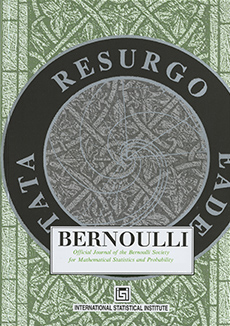Abstract
Determinantal point processes (DPPs) have recently proved to be a useful class of models in several areas of statistics, including spatial statistics, statistical learning and telecommunications networks. They are models for repulsive (or regular, or inhibitive) point processes, in the sense that nearby points of the process tend to repel each other. We consider two ways to quantify the repulsiveness of a point process, both based on its second-order properties, and we address the question of how repulsive a stationary DPP can be. We determine the most repulsive stationary DPP, when the intensity is fixed, and for a given $R>0$ we investigate repulsiveness in the subclass of $R$-dependent stationary DPPs, that is, stationary DPPs with $R$-compactly supported kernels. Finally, in both the general case and the $R$-dependent case, we present some new parametric families of stationary DPPs that can cover a large range of DPPs, from the stationary Poisson process (the case of no interaction) to the most repulsive DPP.
Citation
Christophe Ange Napoléon Biscio. Frédéric Lavancier. "Quantifying repulsiveness of determinantal point processes." Bernoulli 22 (4) 2001 - 2028, November 2016. https://doi.org/10.3150/15-BEJ718
Information





